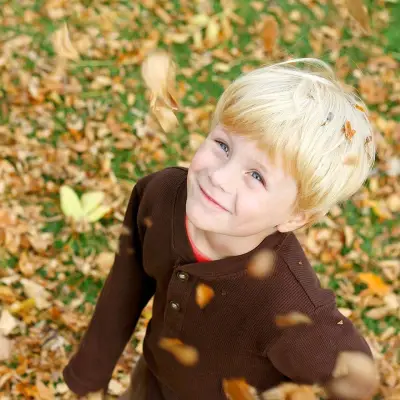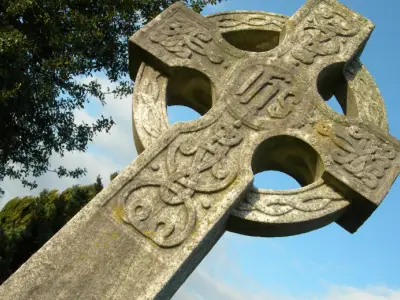Forgiving yourself can sometimes feel like an impossible challenge. We've all been there, carrying the weight of past mistakes, wondering how we can possibly let go and move forward.
Whether it's a small blunder or something you consider unforgivable, the journey to self-forgiveness is essential for your emotional and mental well-being. Let’s delve into nine practical steps to help you navigate through this process, ensuring you understand the power of forgiving yourself.
Jump to:
- Understanding Forgiveness
- The Importance of Self-Forgiveness
- Step 1: Acknowledge What Happened
- Step 2: Understand the Impact
- Step 3: Practice Compassion and Empathy
- Step 4: Learn from Your Mistakes
- Step 5: Make Amends
- Step 6: Learn The 4 Rs of Self-Forgiveness
- Step 7: Engage in Self-Forgiveness Exercises
- Step 8: Seek Support
- Step 9: Have Patience
- The Power of Letting Go
- Frequently Asked Questions About Self-Forgiveness
Understanding Forgiveness

Forgiveness is the act of letting go of resentment, anger, or blame towards someone or, in this case, yourself. It's about acknowledging the human nature of making mistakes and releasing the burden of guilt that holds you back. But why is self-forgiveness so hard? It often stems from your own expectations and the guilt that lodges itself deep within, routed in stress and anxiety.
The Importance of Self-Forgiveness

Forgiving yourself isn't just about feeling better in the moment. It's an important step towards healing and growth. Studies in psychology highlight the benefits of forgiveness, including reduced anxiety, depression, and stress, leading to a healthier, more fulfilling life. When you hold onto guilt, it's trapped in your body, manifesting physically and emotionally. Learning to forgive yourself opens the door to self-acceptance and the freedom to move forward.
Step 1: Acknowledge What Happened
The first step in how to forgive yourself is acknowledging what happened. Accepting responsibility for your actions or mistakes is essential. This isn't about dwelling on the negative but rather facing reality head-on, which is the foundation of forgiveness. Understanding what led to your actions can be enlightening and is the first step towards making peace with yourself.
Step 2: Understand the Impact
After acknowledging your mistake, it's important to understand its impact. This involves recognising how your actions have affected yourself and others. Whether it's a matter of how to forgive yourself for hurting someone you love or something you deem unforgivable, comprehending the consequences is key to moving forward.
Step 3: Practice Compassion and Empathy
Extending compassion to yourself might feel unnatural, especially when grappling with guilt. However, showing yourself the same kindness you'd offer a friend is an important step. Ask yourself, "If a loved one was in my situation, how would I treat them?" This perspective can shift how you view your own mistakes, making the path to forgiveness more accessible.
Step 4: Learn from Your Mistakes
Forgiving yourself for past mistakes is not just about letting go of guilt; it's also about growth. Ask yourself what you can learn from this experience. Every mistake is an opportunity to grow and improve. This shift in perspective transforms negative experiences into valuable lessons, contributing to personal development.
Step 5: Make Amends
Where possible, making amends can be a powerful step towards self-forgiveness. If your actions have hurt others, consider how you might rectify the situation. This isn't always possible, especially in cases where you cannot apologise directly. However, you can still commit to doing better in the future, which is a form of making amends with yourself.
Step 6: Learn The 4 Rs of Self-Forgiveness
A useful framework for forgiving yourself is the 4 Rs: Responsibility, Remorse, Restoration, and Renewal. Whenever you’re being particularly harsh on yourself, repeat the four Rs in your head as a mantra.
- Responsibility: Acknowledge your mistake and its impact on yourself and others.
- Remorse: Understand and feel the weight of your actions and their consequences.
- Restoration: Make amends where possible, either directly or through personal growth and positive contributions.
- Renewal: Commit to moving forward without repeating the same mistakes, allowing personal growth and development.
Step 7: Engage in Self-Forgiveness Exercises
Engaging in self-forgiveness exercises can encourage self-forgiveness. Journaling is a powerful tool; write about what happened, how it made you feel, and how you can forgive yourself. Another exercise is writing a letter to yourself expressing forgiveness. You don't have to send it, but it's a symbolic way of letting go. Meditation and mindfulness can also help you stay present, reducing negative self-talk and promoting a forgiving mindset.
Step 8: Seek Support
Remember, you don't have to go through this process alone. Talking to a trusted friend, family member, or a professional can provide you with different perspectives and support. Sometimes, just sharing your feelings can lighten the burden and make the path to forgiveness clearer.
Step 9: Have Patience
Self-forgiveness doesn't happen overnight. It's a process that requires time and patience. Be kind to yourself, and recognise that moving forward is a journey. Celebrate small victories along the way, and don't be too hard on yourself if you experience setbacks. Each step forward is a step towards healing.
The Power of Letting Go
Letting go of guilt and forgiving yourself is liberating. It allows you to break free from the chains of the past, opening up new possibilities for the future. What does forgiving yourself look like? It's acknowledging your humanity, accepting your imperfections, and understanding that you are more than your mistakes. It's giving yourself the freedom to live your life unburdened by the past.
Frequently Asked Questions About Self-Forgiveness

What Happens If You Never Forgive Yourself?
If you never forgive yourself, you might be trapped in a cycle of guilt and self-punishment. This can lead to increased stress, depression, and a negative impact on your overall mental health and relationships. Addressing these feelings is crucial to move forward and live a healthier, more positive life.
Where Is Guilt Trapped in the Body?
Guilt can manifest physically in various ways and is often trapped in the body, leading to tension, discomfort, or even chronic pain, particularly in the shoulders, back, and stomach. Addressing and releasing guilt through forgiveness can help alleviate these physical symptoms.
How Do You Forgive Yourself for Doing Something You Believe Is Unforgivable?
Forgiving yourself for something you believe is unforgivable starts with understanding that everyone makes mistakes, and what matters most is your willingness to learn and grow from them. It involves practising self-compassion, seeking understanding and support from others, and engaging in exercises that promote forgiveness.
Why Do I Struggle to Forgive Myself Even When I Know It’s Important?
Struggling to forgive yourself is common and can stem from deep-seated beliefs about worthiness and fear of facing the full extent of your actions. It might also be due to not knowing how to start the forgiveness process or fearing that forgiving yourself means condoning what happened.
How Can Forgiveness Impact My Physical Health?
Forgiveness, especially self-forgiveness, can significantly impact your physical health by reducing stress, lowering blood pressure, improving heart health, and enhancing overall well-being. Holding onto guilt and resentment can lead to physical symptoms of stress and even contribute to long-term health issues.
Is Forgiving Yourself Selfish?
Forgiving yourself is not selfish; it’s a necessary act of self-care and healing. It allows you to learn from your mistakes, make peace with the past, and move towards a more positive future. It also enables you to be more compassionate and empathetic towards others.
How Do I Deal With Others Who Won’t Forgive Me?
Dealing with others who won’t forgive you can be challenging, but it’s important to respect their feelings and give them space and time. Focus on your journey of self-forgiveness and personal growth journey, and maintain an open and compassionate stance towards them.
Can Forgiving Myself Improve My Relationships With Others?
Forgiving yourself can significantly improve your relationships with others. It frees you from the cycle of guilt and resentment, allowing you to interact with others more openly, honestly, and compassionately. It also sets a foundation for healthy communication and mutual forgiveness.
How Long Does the Process of Self-Forgiveness Take?
The process of self-forgiveness varies for each person and depends on the nature of the mistake and personal emotional resilience. It’s a journey that requires patience, understanding, and continuous effort. There is no set timeframe; it’s about making consistent progress.
Can Self-Forgiveness Lead to Repeat Mistakes?
Self-forgiveness, when genuine, involves learning from your mistakes and committing to not repeating them. It’s about growth and understanding, not excusing poor behaviour. Therefore, it should lead to more mindful actions, not repeated mistakes.
Recommended for you!
Best SellersDiscover the Power of Self-Forgiveness with Centre of Excellence
Begin a transformative journey of self-discovery and forgiveness with our Self Love Healing Diploma Course, crafted with in-depth insights and actionable tools to fortify your relationship with yourself.
Why Centre of Excellence?
- Inclusivity in Learning: We firmly believe that education should be accessible to all, so we've priced our courses to ensure that everyone has the opportunity to learn and grow.
- Learning Tailored to Your Life: Our courses are designed for utmost flexibility, allowing you to learn at your own pace and integrate personal development seamlessly into your daily life.
- Diverse Educational Offerings: Our curriculum spans a wide range of topics related to self-love and self-forgiveness, catering to various interests and encouraging personal growth.
- Supportive Learning Environment: Upon enrolment, you'll receive personalised tutoring and join a community of learners, ensuring a supportive network throughout your learning journey.
Special Offer
We're excited to offer our Self Love Healing Diploma Course at a special discounted rate of £29 for a limited period.













